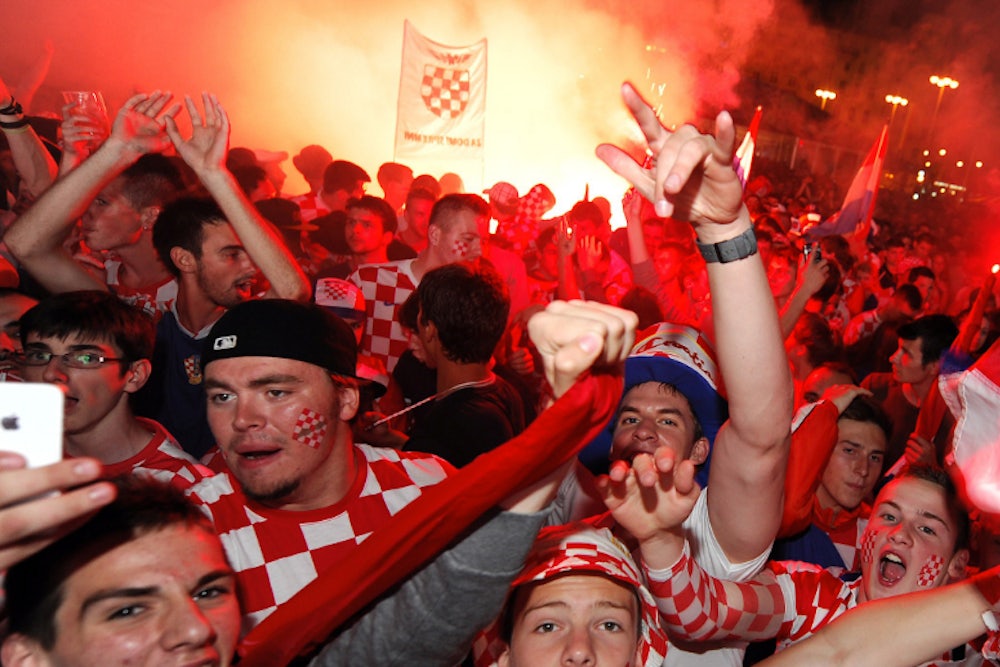Ah! The sound of disappointment, the smell of the patriotic adrenaline dropping!
I watched the Croatia-Mexico game in Split, Croatia. A large screen was erected on the west end of the harbor for thousands of fans to get together and drink beer, wearing checkered Croatian shirts, silly hats, flags, and the usual adornments of committed fandom. There was excitement and expectation, and the usual fan-rock songs with patriotic bent, some of them (sung by a singer named after a rifle) bent so much as to be reaching the twinkly toes of the dumbest fascism. A group of hardcore fans, all very young and fully clad in national colors, stood near me. They sang along with the song blasting from the sound system, occasionally chanting the war cry (Za dom spremni!) of Ustase, Croatian World War II fascists.

No one joined them, but there were no objections either—fascist chants are within the realm of shared excitement, as they're common among Croatian football supporters. In fact, the national team player Joe Simunic was suspended for a ten games for engaging with the fans in chanting the same fascist cry after eliminating Iceland to qualify for the World Cup.
I realized, being in the middle of all that excitement, that I usually watch and experience soccer games as I do books—I tend to do it alone, I try to understand how the game works, I imagine what choices I would make in the situations the players on the pitch face. I read the game and the emotional impact is delayed and indistinguishable from the thinking about it.
But if you're a member of a bunch of aroused fans, you project your intense emotions and expect them to impact the game in miraculous ways. The hardcore fans booed the Mexican national anthem, even if there were no Mexicans present outside the screen. They hurled unimaginative insults—many of them featuring the sombrero—at the Mexican team facing their flag in Recife. They chanted in support of the Croatian goalie, praising his short hair and long legs. They demanded red cards for Mexican players, they screamed at Croatian players to run faster, then sang some more patriotic songs. At half time, a couple of presumably scantily dressed Brazilian dancers showed up and the boys predictably enjoyed that.
When Croatia conceded the first goal, for which Rafa Marquez was completely unmarked, they cursed at the player who was supposed to watch him, even if they couldn't agree on who was supposed to be doing the job. When the conceded the second one, they lit up the flares and let them burn out. They missed the third goal, too busy with their disappointment. At the end of the game, they dispersed into the crowd, and walked home with the rest. What is the sound of defeat? It is the sound of not-chanting.
